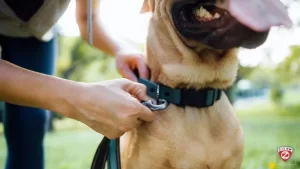Introduction: Nutrition is a cornerstone of pet health and safety. Just like humans, pets require a balanced diet to thrive. This blog explores the importance of providing a balanced diet to your pets and how it can prevent health issues and enhance their overall well-being. By understanding the role of nutrition, pet owners can make informed choices that support the health and longevity of their beloved companions.
The Significance of Proper Nutrition A balanced diet is vital for maintaining the health and longevity of your pet. Proper nutrition ensures that pets receive the essential vitamins, minerals, and nutrients necessary for their growth and development. Nutritional deficiencies or imbalances can lead to a range of health problems, including weakened immune systems, obesity, and chronic diseases. Conversely, a well-rounded diet supports robust immune function, healthy weight management, and overall vitality.
Common Nutritional Needs for Pets Each pet species has unique dietary requirements. Understanding these needs helps pet owners make informed decisions about what to feed their pets. For example, dogs require a mix of proteins, fats, and carbohydrates, with specific ratios varying based on age, size, and activity level. Cats, being obligate carnivores, need a higher protein diet due to their specific metabolic requirements. Additionally, pets like birds, reptiles, and small mammals have their own distinct nutritional needs that must be met to ensure their health and safety.
Selecting Safe and Healthy Pet Food Choosing the right pet food involves checking for high-quality ingredients, avoiding harmful additives, and understanding pet food labels. Pet owners should opt for reputable brands that prioritize animal health. Look for foods that list specific meat sources as primary ingredients and avoid those with excessive fillers, artificial colors, and preservatives. Understanding labels is crucial—terms like “complete and balanced” indicate that the food meets the nutritional standards set by regulatory bodies. Consulting with a veterinarian can also provide guidance on selecting the best food for your pet’s specific needs.
Homemade vs. Commercial Pet Food Both homemade and commercial pet foods have their pros and cons. Homemade diets can be tailored to specific needs but require careful planning to ensure they meet all nutritional requirements. Pet owners must be vigilant about including all necessary nutrients and avoiding harmful ingredients. On the other hand, commercial pet foods are convenient and designed to meet established nutritional standards, but they vary in quality. Choosing high-quality commercial foods from trusted brands can provide a balanced and complete diet, while also saving time and effort.
Conclusion: In conclusion, ensuring proper nutrition is a key aspect of pet safety and well-being. By providing a balanced diet and understanding your pet’s specific nutritional needs, you can significantly enhance their health and quality of life. Proper nutrition supports immune function, prevents chronic diseases, and contributes to overall vitality and longevity. Pet owners who invest in their pets’ nutritional health are taking a proactive step towards ensuring their furry friends live happy, healthy lives.








 WP Digitals
WP Digitals